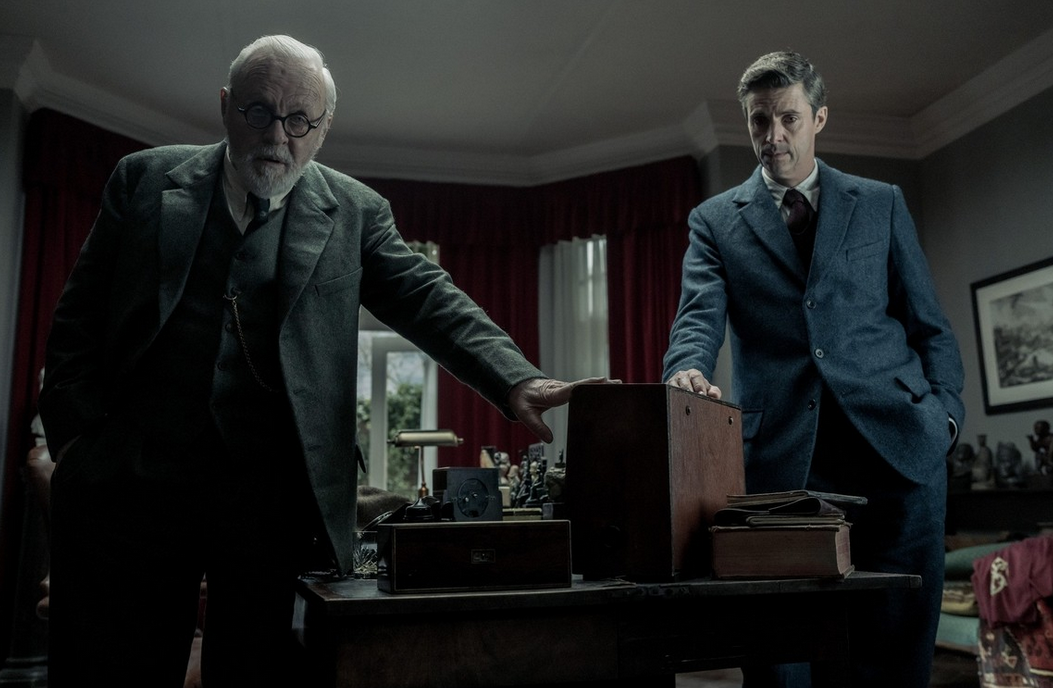In director and co-writer Matt Brown’s “Freud’s Last Session,” the narrative embarks on a precarious journey, struggling to maintain a cohesive focus. While cinematic ventures often thrive on exploring multiple themes, this adaptation of Mark St. Germain’s play faces challenges in sustaining a clear and engaging direction, leaving the audience yearning for a more definitive narrative core.
The central premise revolves around the speculative notion that Sigmund Freud (Anthony Hopkins) engaged in a theological debate on the existence of God with C.S. Lewis (Matthew Goode) in the period preceding World War II. However, the film introduces interruptions stemming from Freud’s deteriorating health, ranging from medication needs to visits from his daughter Anna (Liv Lisa Fries), who takes risks to deliver the meds and blaring air raid sirens.
Navigating past, present, and fantasy elements, the film shines brightest when delving into the heart of the theological discourse between the two men. The nuanced performances of Hopkins and Goode create moments of intellectual intrigue, offering glimpses of the potential depth within the dialogue. However, these moments are regrettably overshadowed by distractions, such as Lewis’ unconventional love affair, diverting attention away from the central theological exploration.
Despite his captivating portrayal, Hopkins introduces an additional layer of distraction with a peculiar Austrian accent, contributing to the film’s struggle to maintain focus. Stephen Campbell Moore’s portrayal of JRR Tolkien, while enhancing the star-studded cast, serves more to contribute to the film’s overall atmosphere than to introduce substantive elements to the narrative.
The speculative nature of the conversation, though authentic in its exploration of Freud and Lewis, cannot fully compensate for the screenplay’s disjointed structure, which contributes to the overall lack of development. The film becomes an exercise in frustration, where narrative distractions and a lack of cohesion dilute moments of intellectual promise.
“Freud’s Last Session” offers glimpses of brilliance within its exploration of theological debates, powered by the stellar performances of its cast. Yet, the film falls short of capitalizing on the potential depth, leaving audiences longing for a more focused and refined cinematic experience. As the film unfolds in theaters, its struggles highlight the delicate balance required to navigate complex themes without sacrificing narrative coherence.
